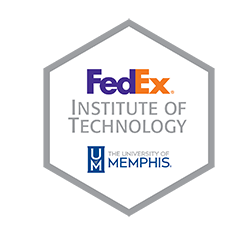Agile Release Management
Register* for Upcoming Classes:
Join Waitlist
Release Management (RM) facilitates delivery of a quality product by managing, planning, scheduling and controlling the integration, testing and deployment of a product increment – the Release. This is where the "rubber hits the road" and all plans and expectations meet a hard reality. Working to satisfy the many stakeholders that can be involved in a complex release can be a high-intensity challenge that can degenerate into a high-pressure, reactive and conflict-ridden release phase. Having a simple, lean RM process that is understood by all parties is essential to improve team and organizational delivery velocity without the stress and potential burnout of a bad release experience.
A good release process ensures that the different facets of the product, and more
generally the solution which might include the software, infrastructure, business
processes and human capabilities; come together into a complete package that satisfies
some end-customer's requirements. RM agility requires striking a balance between the
concerns of developers, testers and QA representatives with the business demands for
rapid delivery of features and reliable schedules. This is best achieved by adopting
agile principles and providing full visibility/ transparency of the release lifecycle
that invites timely and orderly multi-disciplinary engagement of product owners, architects,
developers, testers and business stakeholders. Establishing a continuous integration
and delivery Agile Release Train is today a key development capability that can ensure
practiced reliable delivery of a quality release.
In this two-day program we will explore the essential practices and processes necessary
to achieve agile release management.
Through this program, attendees will:
1. Revise agile principles as they apply to RM
2. Review a generic RM lifecycle (pattern) that identifies core activities necessary
to plan, control, integrate and deploy a release
3. Learn the different roles that participate in the release process and better appreciate
their viewpoint and contribution
4. Consider the different types of artifacts that can constitute their "release configuration"
and relate that to the different stakeholder viewpoints
5. Hear case studies on different release processes and the tools that offer automation
and continuous integration and delivery support
6. Appreciate the 5 abstraction layers of a release that will improve their ability
to communicate across the organization
7. Understand the 3 critical perspectives that together provide a more reliable assessment
of release status
8. Develop a "strawman" end-to-end Agile Release Train plan (noting specific exceptions)
walking through generic step-by-step stages. e.g. Decide your cadence
9. Identify potential choke-points in the lifecycle exploring different scenarios
that facilitate resolution
10. Participate in exercises that enable them to reflect on and share their own release
experiences
11. Perform a simple gap-analysis that forms the basis of an adoption/ transition
plan for Agile RM
Schedule
DAY ONE
- Revise agile principles as they apply to RM
- Review a generic RM lifecycle (pattern) that identifies core activities necessary to plan, control, integrate and deploy a release
- Learn the different roles that participate in the release process and better appreciate their viewpoint and contribution
- Consider the different types of artifacts that can constitute their "release configuration" and relate that to the different stakeholder viewpoints
- Hear case studies on different release processes and the tools that offer automation and continuous integration and delivery support
- Appreciate the 5 abstraction layers of a release that will improve their ability to communicate across the organization
DAY TWO
- Understand the 3 critical perspectives that together provide a more reliable assessment of release status
- Develop a "strawman" end-to-end Agile Release Train plan (noting specific exceptions) walking through generic step-by-step stages.
- Identify potential choke-points in the lifecycle exploring different scenarios that facilitate resolution
- Participate in exercises that enable them to reflect on and share their own release experiences
- Perform a simple gap-analysis that forms the basis of an adoption/ transition plan for Agile RM
End of Day Two: EXAM (open book, open note)
Registration Guide
This course is by reservation only and is filled on first come-first serve basis. Invoicing and tuition reimbursement are available. Deferred Payment Acceptable
Course Administered at FedEx Institute of Technology, 365 Fogelman Drive.
How to register?
FedEx Institute of Technology Travel Information
Instructor Bio

Dr Louis Taborda is passionate about positive changes in business, technology and society at large. Working across the program/project lifecycle, he has been at the forefront of solution development methods for over 25 years. In his diverse career he has held various roles including developer, architect, tester and project manager, as well as taking senior management roles in engineering, software, IT and service organizations. As the Chief Technologist for a leading software tools vendor, Louis was an early evangelist and coach for Agility and DevOps – before it had a name. He recently authored the definitive book on Enterprise Release Management, which extended his PhD research to address the scaling of agile delivery to complex and interdependent project portfolios. In May 2018, PMI Australia presented Louis with the Distinguished Contribution to Project Management- 2018 Award for his work to make research more relevant and meaningful to project practitioners. Based out of Sydney, Louis consults internationally and continues to write, teach and develop collaborative execution techniques that apply Agile and Lean principles to streamline delivery in challenging, multi-stakeholder environments.

